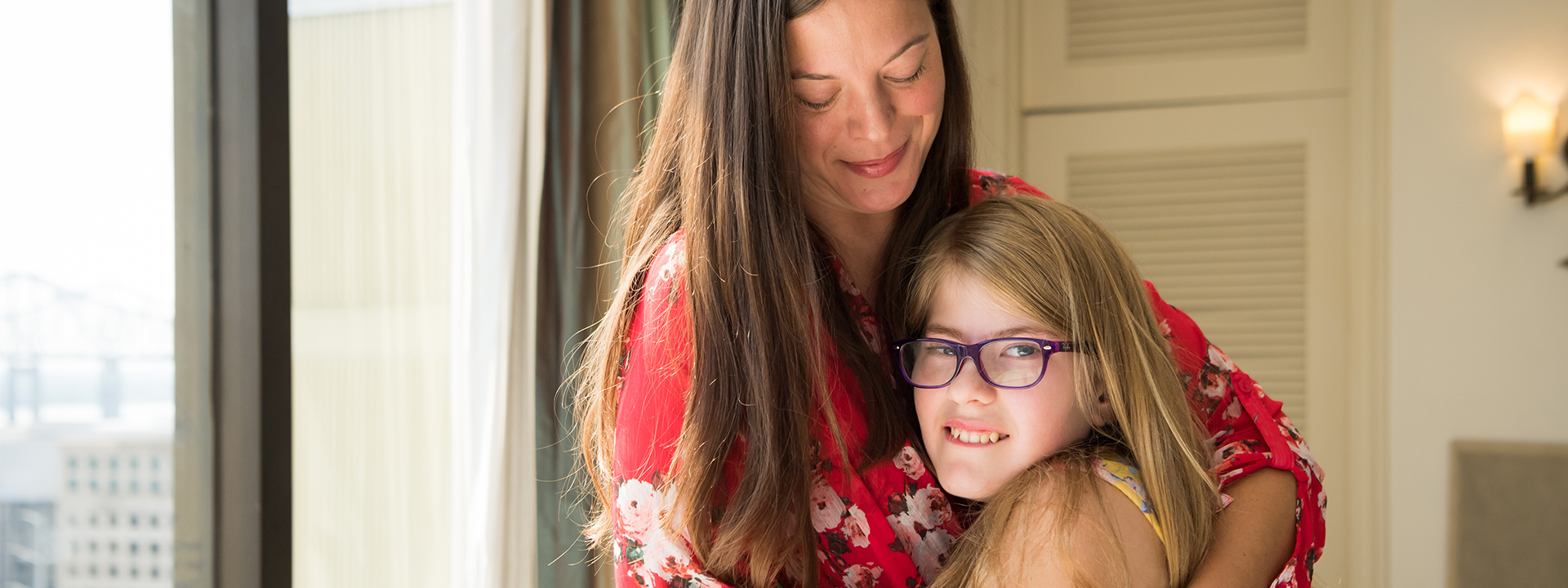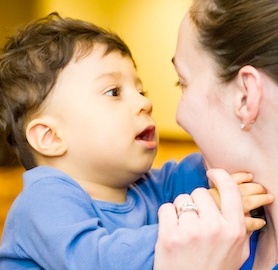
Mindfulness is a technique in which a specific mental state is achieved by focusing one's awareness on the present moment. Rather than trying to change the situation, it teaches the person to change the nature of their response to the situation or problem. Think of mindfulness as being attentive to what you are doing, with nonjudgmental acceptance of your current emotions and experiences.
A number of research studies have shown that regular practice of mindfulness strategies can make a big impact on people with special needs and their caregivers.
If you are a parent of someone with a disability, chances are, you have experienced high levels of stress. The good news is that there is something you can do about it!
Mindfulness expert Dr. Nirbhay Singh spoke at the 2019 FPWR Family Conference, and focused on a different way of addressing behaviors challenges in PWS and caregiver fatigue. In his workshop, Dr. Singh showed how learning and practicing Mindfulness skills can be very helpful, for not only the caregiver, but also the person with PWS.
According to Dr. Singh, we do things when we're upset that we regret later. When we reduce parental stress, parents are in a better able to provide loving kindness. Dr. Singh also talked about a study of caregivers that showed 10-weeks of mindfulness had a statistical clinical improvement in stress and when the parent's stress goes down, 'whatever you are doing, it just makes it better.'
You will find a short 4-minute video of the interview with Dr. Singh below. You can also watch the full interview with Dr. Singh on our YouTube channel.
In addition to previous published research, there is a current ongoing study funded by FPWR looking at training people with PWS to use a mindfulness technique designed specifically for people with Intellectual Disability called Soles of the Feet to help reduce challenging behaviors such as temper outbursts and other forms of distress.

Here are a few take home resources from Dr. Nirbhay Singh’s FPWR workshop that caregivers can use in their day-to-day life:
Mindfulness Practice at home for Parents and ChildrenMindfulness of the Breath
Practice focusing just on your breath, which is the object of this meditation. It can be useful to start with just a few minutes. Close your eyes and follow the flow of your breath for a few minutes with an awareness of what is happening in your mind while you do this. Afterwards ask yourself – what did I observe my mind doing during the breathing exercise? Was my mind busy, quiet, distracted? There are no wrong answers! Again the goal of this “exercise” is just paying attention and breathing.
5 Essential Elements for developing a Mindfulness Habit
Science continues to show that an active meditation practice has important health benefits. But no matter how much we talk about it, read about it, or study it, creating a regular mindfulness practice can be challenging. As Dr. Singh says, “An ounce of meditation is better than a ton of reading”. Here is a download with 5 important tips for developing your own mindfulness practice.
It might be somewhat surprising that your smart phone, a device that often leads to stress and overstimulation flooding you with constant emails and information, can also transform into a source of relaxation and a pause from all the noise and stress of day to day life. Here are some links and apps that you can help you start your mindfulness practice:
Free recordings sponsored by UCLA
App Subscriptions
** There is an option to try out a few sessions for FREE on each of these apps before you decide if you want to purchase a monthly subscription.
Give these a try they as they can be a very useful companion to your day and help keep you on track for creating your mindfulness habit. Also both the Calm and Headspace Apps have specific meditations for children (ages 4 to 17 years old ) to use.
Research has shown that parents of children with PWS can have high rates of stress, personal health issues and high “caregiver burden” (a.k.a. caregiver fatigue). In the video below, Dr. Elisabeth Dykens uses current research to support the necessity of self-care and the benefits Mindfulness can bring.

The Foundation for Prader-Willi Research (federal tax id 31-1763110) is a nonprofit corporation with federal tax exempt status as a public charity under section 501(c)(3).



The mission of FPWR is to eliminate the challenges of Prader-Willi syndrome through the advancement of research and therapeutic development.
Copyright © 2020. All Rights Reserved. Terms of Use. Privacy Policy. Copyright Infringement Policy. Disclosure Statement.